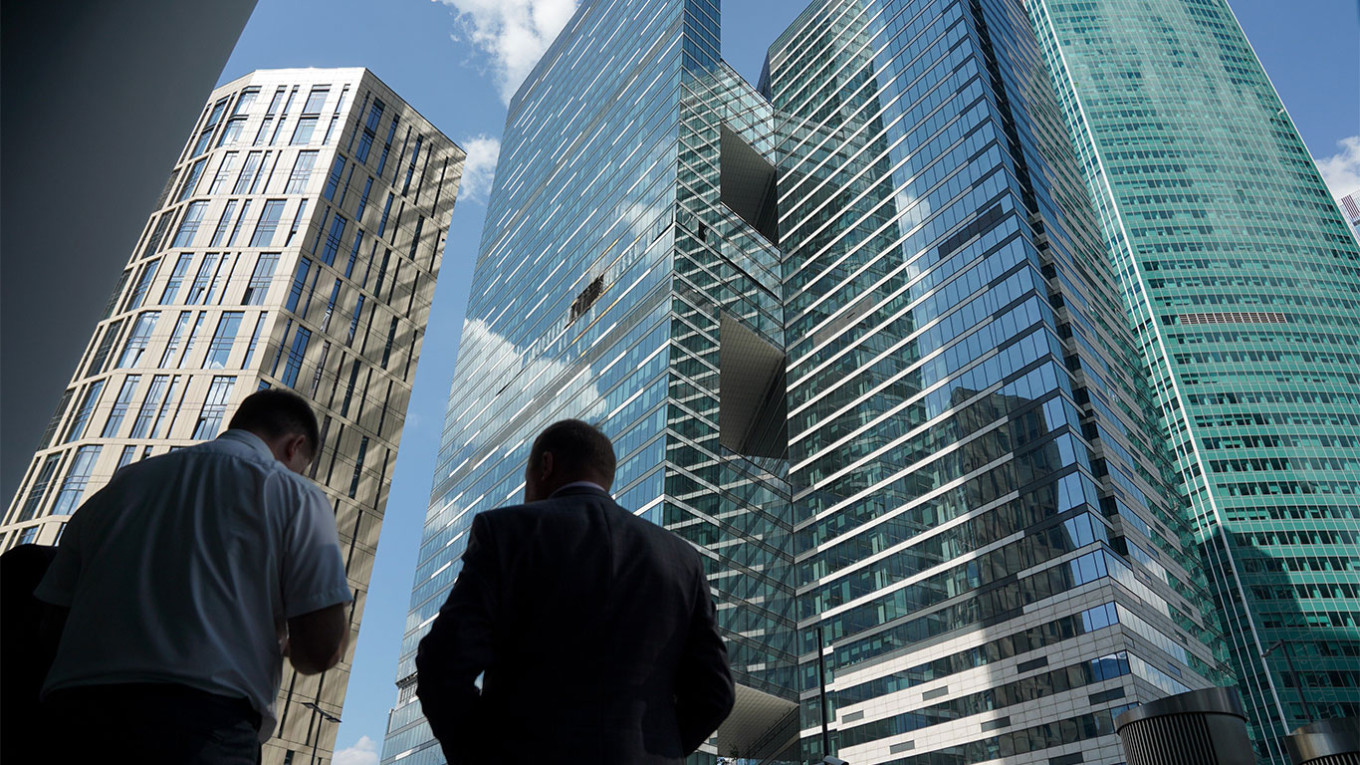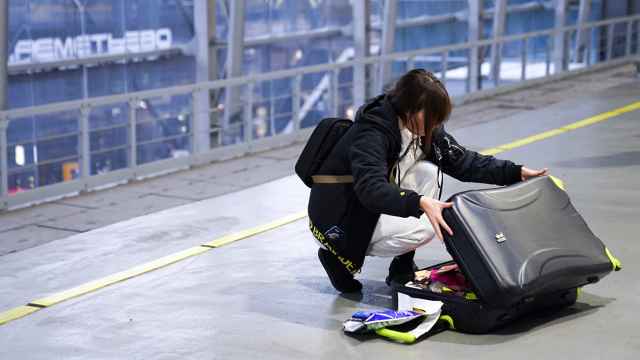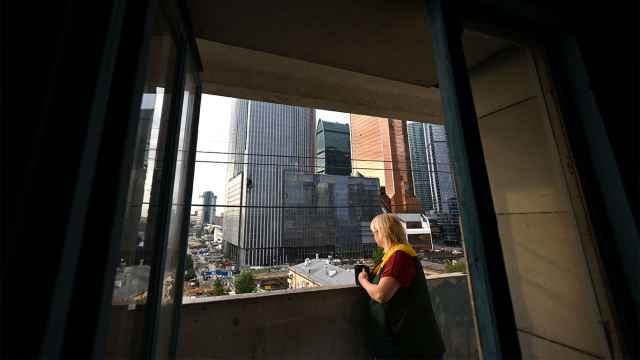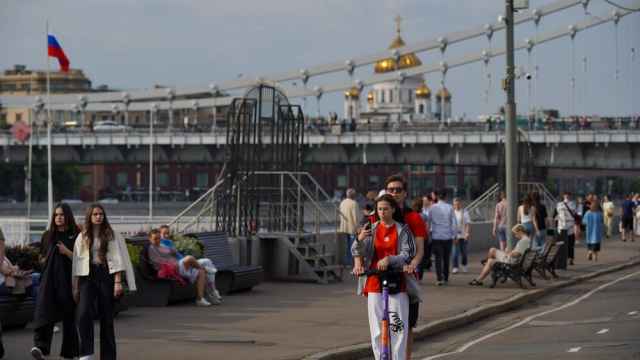Drones targeted the Moscow City business and finance district, a cluster of modern skyscrapers towering over the Russian capital, for the second time in three days Tuesday.
But while Kyiv said the back-to-back incidents were a sign of how the war has come home to Russia a year and a half into its offensive on Ukraine, Muscovites living and working in the district who spoke to The Moscow Times appeared largely unfazed.
"No one is particularly surprised by the attack on Moscow City" after the drone attack on the Kremlin in May and a string of assassinations of prominent pro-war figures on Russian soil, an employee of the state-run bank Sber told The Moscow Times.
“Right now, we're just joking about it. Colleagues say I shouldn't have asked the boss for a desk next to the window.”
A symbol of Putin-era capitalism, Moscow City houses the offices of large corporations and government agencies, as well as expensive apartments rented by businesspeople and celebrities.
The drone damaged the 21st floor of the building that houses three government ministries, as well as state agricultural bank Rosselkhozbank. Local authorities said the drone fell on the building after it was shot down by the city's air defenses. Similarly, two drones crashed into skyscrapers on the night of July 30.
Moscow Mayor Sergei Sobyanin said no one was injured, while emergency services reported that one security guard was injured.
An employee of the majority state-owned bank VTB, whose office is also located in Moscow City, said that she did not think the drone attack “broke the mold."
City residents are used to drones flying over Moscow, she said, noting only that “it's strange that it didn't happen sooner.”
Residents and workers in Moscow City interviewed by The Moscow Times requested anonymity in order to speak freely about potentially sensitive matters.
Drone attacks on the Russian capital, which would have been unheard of one year ago, appear to have become an ordinary occurrence for Muscovites.
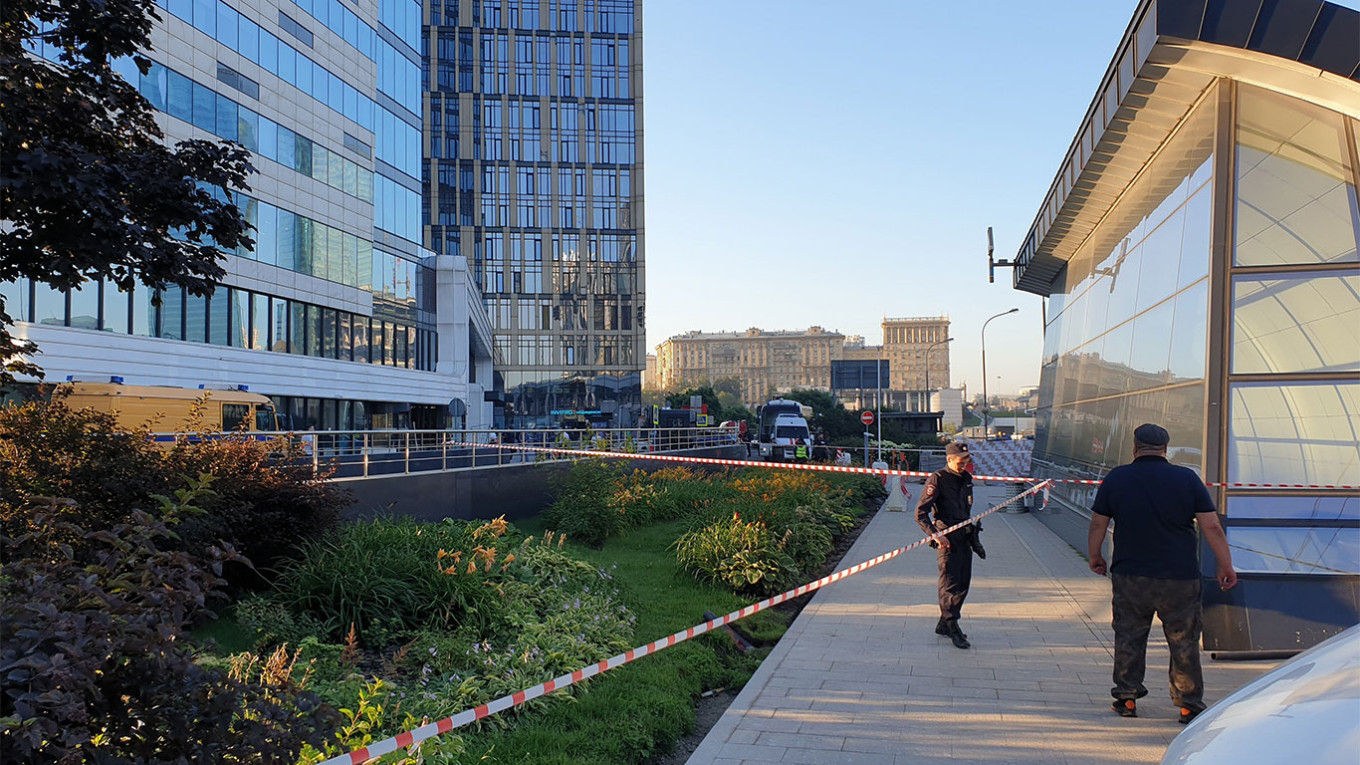
Since the beginning of July, the Russian capital has faced five attacks, one of which targeted the Defense Ministry headquarters. In May, Russia said that Ukraine carried out a drone attack on the Kremlin in an attempt to assassinate President Vladimir Putin, with Putin saying that “the air defense system worked normally.”
Ukraine has not acknowledged responsibility for any of the attacks.
Following the Moscow City attacks, Ukrainian President Volodymyr Zelensky warned that "war" was coming to Russia.
"Gradually, the war is returning to the territory of Russia — to its symbolic centers and military bases, and this is an inevitable, natural and absolutely fair process," Zelensky said Monday.
Kremlin spokesperson Dmitry Peskov on July 30 called the first attack on the skyscrapers an “act of desperation” by Ukraine as it faced battlefield setbacks during its counteroffensive.
After the second attack, Peskov admitted that there was a “real threat” and said that the government was “taking action.”
Russian Foreign Ministry spokeswoman Maria Zakharova meanwhile compared the attacks on Moscow City with the terrorist attack of Sept. 11, 2001 in the United States.
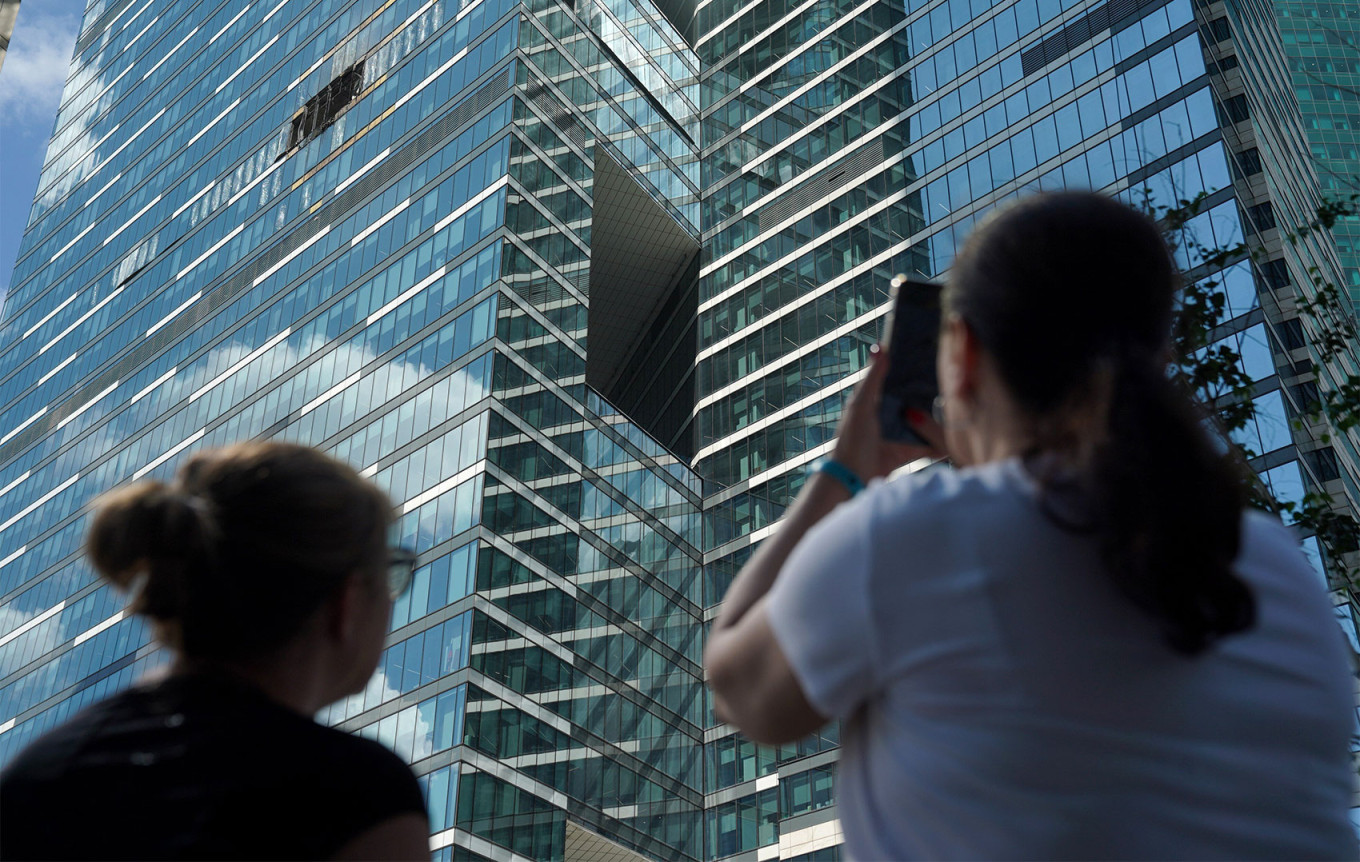
Nevertheless, large companies and government agencies have been in no hurry to transfer their employees to other offices, merely allowing workers to temporarily work from home.
Officials at the Digital Development Ministry were allowed to work remotely for a week, while employees of the Ozon online marketplace were sent home for just two days, the Kommersant business daily reported.
Russian IT giant Yandex has asked its employees to leave the office at night, Reuters reported.
“We didn't have any additional safety instructions. They just allowed us to work from home for a couple of days,” an employee of VTB Bank told The Moscow Times. Another VTB employee confirmed this.
The drone attacks on Moscow City may damage the business cluster’s popularity in the short term, Kommersant wrote, citing experts and real estate brokers. They noted that they expected security measures in the business center to be tightened.
Unlike most employees of companies who were not in their offices at the time of the night attacks, many apartment residents were in a panic when they woke up from the explosions.
“My girlfriend woke me up. She was screaming that we needed to run away from home. I tried to calm her down and [then] we fell asleep,” a businessman who lives in one of the skyscrapers said.
Like Zakharova, he also compared the explosion to the Sept. 11 terrorist attack and added that he had expected something similar to happen in Moscow. Still, he said he does not plan to leave his apartment.
“I feel calm. Everything is in the hands of higher powers,” he said.
Another resident, 35-year-old Viviana, admitted that she no longer feels safe in her home.
“It was a terrible experience that I will not wish on anyone. I had to sit in a makeshift shelter at the kitchen table for a while,” she told The Moscow Times.
“Many are now thinking about moving,” she said. “But there are also those who were not scared by this [the explosions] in any way — or maybe they just don't have enough brains to understand how serious everything is.”
A Message from The Moscow Times:
Dear readers,
We are facing unprecedented challenges. Russia's Prosecutor General's Office has designated The Moscow Times as an "undesirable" organization, criminalizing our work and putting our staff at risk of prosecution. This follows our earlier unjust labeling as a "foreign agent."
These actions are direct attempts to silence independent journalism in Russia. The authorities claim our work "discredits the decisions of the Russian leadership." We see things differently: we strive to provide accurate, unbiased reporting on Russia.
We, the journalists of The Moscow Times, refuse to be silenced. But to continue our work, we need your help.
Your support, no matter how small, makes a world of difference. If you can, please support us monthly starting from just $2. It's quick to set up, and every contribution makes a significant impact.
By supporting The Moscow Times, you're defending open, independent journalism in the face of repression. Thank you for standing with us.
Remind me later.


